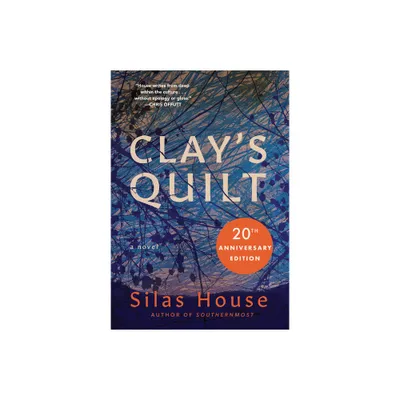Home
Silas Marner: The Weaver of Raveloe
Loading Inventory...
Barnes and Noble
Silas Marner: The Weaver of Raveloe
Current price: $5.95


Barnes and Noble
Silas Marner: The Weaver of Raveloe
Current price: $5.95
Loading Inventory...
Size: OS
*Product Information may vary - to confirm product availability, pricing, and additional information please contact Barnes and Noble
Silas Marner
The Weaver of Raveloe
by George Eliot
(Mary Anne Evans)
COMPLETE LITERARY CLASSICS
Silas Marner: The Weaver of Raveloe is the third novel by George Eliot, published in 1861. An outwardly simple tale of a linen weaver, it is notable for its strong realism and its sophisticated treatment of a variety of issues ranging from religion to industrialisation to community.
The novel is set in the early years of the 19th century. Silas Marner, a weaver, is a member of a small Calvinist congregation in Lantern Yard, a slum street in an unnamed city in Northern England. He is falsely accused of stealing the congregation's funds while watching over the very ill deacon. Two clues are given against Silas: a pocket knife, and the discovery in his own house of the bag formerly containing the money. There is the strong suggestion that Silas' best friend, William Dane, has framed him, since Silas had lent his pocket knife to William shortly before the crime was committed. Silas is proclaimed guilty. The woman Silas was to marry breaks their engagement and later marries William. With his life shattered and his heart broken, Silas leaves Lantern Yard and the city.
Marner travels south to the Midlands and settles near the rural village of Raveloe, where he lives alone, with only minimal contact with the residents. He comes to adore the gold he earns and hoards from his weaving.
The Weaver of Raveloe
by George Eliot
(Mary Anne Evans)
COMPLETE LITERARY CLASSICS
Silas Marner: The Weaver of Raveloe is the third novel by George Eliot, published in 1861. An outwardly simple tale of a linen weaver, it is notable for its strong realism and its sophisticated treatment of a variety of issues ranging from religion to industrialisation to community.
The novel is set in the early years of the 19th century. Silas Marner, a weaver, is a member of a small Calvinist congregation in Lantern Yard, a slum street in an unnamed city in Northern England. He is falsely accused of stealing the congregation's funds while watching over the very ill deacon. Two clues are given against Silas: a pocket knife, and the discovery in his own house of the bag formerly containing the money. There is the strong suggestion that Silas' best friend, William Dane, has framed him, since Silas had lent his pocket knife to William shortly before the crime was committed. Silas is proclaimed guilty. The woman Silas was to marry breaks their engagement and later marries William. With his life shattered and his heart broken, Silas leaves Lantern Yard and the city.
Marner travels south to the Midlands and settles near the rural village of Raveloe, where he lives alone, with only minimal contact with the residents. He comes to adore the gold he earns and hoards from his weaving.


















